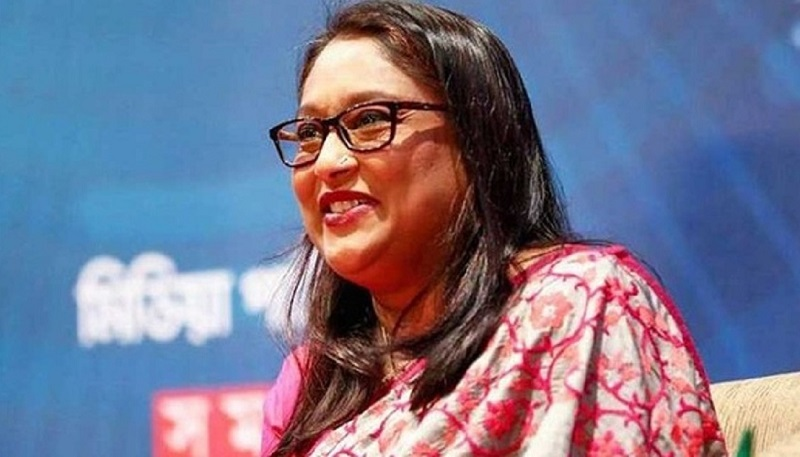
Saima Wazed Hossain, Chairperson, Bangladesh National Advisory Committee on Neuro-development Disorders and Autism today said mental health is truly a global challenge that can no longer be ignored as all countries have committed to achieve universal health coverage (UHC) by 2030.
“As part of the 2030 Sustainable Development Agenda all countries have committed to achieve UHC by 2030. There can be no health without mental health and without health there can be no sustainable development,” she said.
She was giving the key-note speech at a virtual launch event of a new UK-Bangladesh research network led by Imperial aiming to help strengthen mental health services in Bangladesh, said a report of Imperial College London on its website.
Saima outlined the landscape for mental health and universal health coverage in Bangladesh and her vision for the future of mental health care.

The project is funded by Imperial’s award from the UK Research and Innovation (UKRI) Global Challenges Research Fund.
Bangladeshi collaborators include iccdr,b, Innovation for Wellbeing Foundation, JPGSPH, BRAC University and UK partners include Chatham House, East London NHS Foundation Trust and the University of Lincoln.
The Mon Prothom-Mind First research partnership is carrying out several research studies to help strengthen services and integrate mental health into Bangladesh’s Universal Health Coverage.
The launch event, co-organised by Imperial and Chatham House brought together the research collaborators with government ministers, and senior officials and leaders from Bangladesh, UK and global institutions, health professions and UK funding organisations to discuss ways forward for mental health and Universal Health Care in Bangladesh.
Project lead, Professor Mala Rao, from Imperial’s School of Public Health, said: “Ahead of Word Mental Health day, we are absolutely delighted to have established the Mon Prothom, Mind First partnership with key institutions in Bangladesh and the UK.
“This partnership is an exciting opportunity to help develop ways for Bangladesh to achieve ‘mental health for all’ through embedding mental health as part of universal health coverage,” Mala Rao said.
“This is even more poignant this year with the global impact of Covid-19 on all our lives and we look forward to contributing to improving mental health care and developing our partnership and friendship over the coming years,” said the project lead.
Speaking at the event, British High Commissioner to Bangladesh, Robert Chatterton Dickson, said: “Mental health is a neglected emergency throughout the world, made much worse by the effects of the COVID pandemic on people’s lives.”
“I am very pleased to be part of this high level round table discussion on mental Health and Universal Health Coverage in Bangladesh. I hope it will give direction to develop a strong and inclusive mental health policy,” he said.
The high commissioner hoped it would also help lead to more investment in mental health in Bangladesh, building on the 2018 Mental Health Act and more mental health training for primary health care providers to broaden access to this vital care.
Monira Rahman, Executive Director, Innovation for Wellbeing Foundation, said the Mental Health First Aid Program in Bangladesh has shown a great way forward in transforming social attitudes towards mental illness and there is potential for this program to be scaled up at national level.
“I hope by bringing policymakers, scientists and funders together we will help resolve many issues as mental health is everyone’s responsibility,” she said.
Bangladesh has already made impressive gains in improving many of its health indicators such as life expectancy, total fertility rates and child and maternal mortality, and is well placed to build on this history to develop and to deliver effective mental health services.
There is now a growing recognition of the crucial importance of mental health in improving healthy life expectancy. There are challenges, such as a significant shortage in trained healthcare workers.
Equally, there are opportunities to help develop and strengthen services and capacity especially at the primary care and community level, and to design a care pathway which offers equity of access to affordable, universal mental health care.
(Source: BSS)